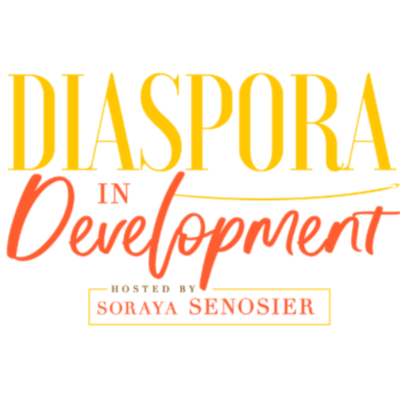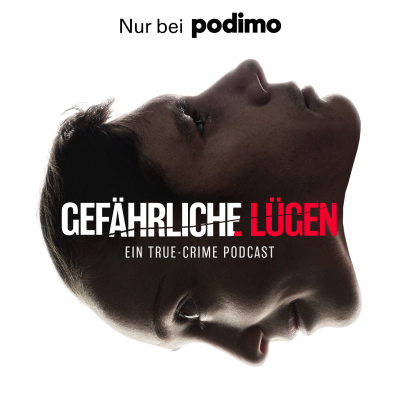
Diaspora in Development
Englisch
Kostenlos bei Podimo
Kostenlos hören bei Podimo
Starte jetzt und verbinde dich mit deinen Lieblingspodcaster*innen
- Vertraut von über 1 Mio. deutschen Hörer*innen
- Über 1.000 lokale Podcasts und Shows – nur bei Podimo
- Keine Zahlung nötig
Mehr Diaspora in Development
The Diaspora and Development Podcast is a place where men and women of the African, Asian, Caribbean, and Latin American diaspora working in international development can discuss issues that impact the developing world and their careers. This show is produced by Lola Keyes and Hosted by Soraya Senosier - Editor Katie Stokes S1 Edit/Music: Rukyato & Soile Tolu | S3: APodcastgeek
Alle Folgen
20 FolgenMountains to Cross: Developing educational initiatives in India and tackling caste culture
Daughters of Destiny is a 2017 English-language original Netflix documentary series created by Oscar-winning filmmaker Vaness Roth. It follows a group of disadvantaged children in rural India enrolled in the Shanti Bhavan [https://en.wikipedia.org/wiki/Shanti_Bhavan] residential school located in Tamil Nadu, India (Wikipedia). In this episode we invite to discover the live of Dr. George Abraham the founder of Shanti Bhavan. Shanti Bhavan is an Indian boarding school, this educational initiative aims tonprovide education and empowerment to children born into India’s lowest castes. Like many members of his diaspora, Dr George sought his fortunenin the US, joining the corporate world of finance. His personal experience withndiscrimination whilst a student in the States, alongside the impact of India's caste system, gave him a new purpose. After a successful career, he turned to philanthropy, and Shanti Bhavan was born. On the show, we’ll uncover: · Dr Abhram’s upbringing andcareer in finance and the military · His thoughts on social justiceand international development in India · The impact of poverty and socialdiscrimination and India · The people and books thatinfluenced his philanthropy · How he founded Shanti Bhavan, aboarding school for the children of the poorest castes · The difficulties and bureaucracyhe faced in founding Shanti Bhavan · His involvement in journalismand how a strong media keeps governments accountable · The importance of the diasporain contributing to development efforts · International attention: The impact of Netflix Documentary, “Daughters of Destiny” and his upcoming book, Mountains to Cross Get your copy of Mountains to Cross here. [https://www.amazon.com/Mountains-Cross-Finding-Purpose-Service-ebook/dp/B0G7MGKR5X/ref=zg_bs_g_11276_d_sccl_1/136-0146821-3941620?psc=1] From the corporate world to philanthropy, follow Dr George’sjourney on Diaspora in Development. Find out why it’s so important for the diaspora community to look past the money in their success and seek out ways to contribute to their home communities, whether big or small. The opinions shared on this forum are the opinions of the individuals and are not the opinions of the organizations and institutes that they work for.
International Development through the lens of behavioural science with Sarah Osman
Sarah Osman joins Diaspora in Development to tackle the fundamental beliefs and human understanding in the International Development. From Khartoum to Oslo, she offers a fresh perspective, at the intersection of psychology, behavioural science and social impact. A fresh take in more ways than one, Sarah introduces you to what international developmentcould be. Having founded Osman Advisory Services,she deep dives into career, representation and scientific rigour required for lasting development at local, regional and international levels. On the show, Soraya and Sarah discuss: How Sarah’s career journey led her tofound Osman Advisory Services · How her consultancy has been built at theintersection of psychology, behavioural design and social impact · She delves into her background, fromZambia to the Netherlands, and how it has shaped her worldview · Her own concept of representation: ThirdCulture Kids & Afropolitan · How her specialisation in behaviouralchange and health psychology created her focus on HIV prevention · Her thoughts on the challenges, rewardsand limits in the international development sector · She introduces ELLA, a digital programthat supports women with roots in the global majority interested in Consultancywork · Her approach to a more inclusive sectorthat reassess its current practices · Her case studies on successfulcollaborations between Western and local universities for more balancedapproaches · Her thoughts on reform: What’s necessaryto balance humanitarian needs with innovation and market development? · Her own personal reflections on hercareer milestones · Her personal hopes for the future: Ineducation, the young people of Africa and the continuous improvement ofhumanity A scientists rigour weaves through thisentire show. It is a must-listen for anyone who is interested in the future ofhumanity. How do we make decisions in the international development sector?What’s driving our approaches? And lastly, can we do better, collaborativelyand inclusively. The opinions shared on this forum are the opinions of theindividuals and are not the opinions of the organizations and institutes thatthey work for.
Humanitarian Aid Through Creative Expression
In this episode, we introduce the Executive Director of FilmAid in Kenya, Stella Suge. In the last 20 years, she has supported the growth of the organisation from admin through to directorship. The organisation offers media training for vulnerable and refugee communities, giving hundreds of people the opportunity to tell authentic stories. In this episode, we introduce theExecutive Director of FilmAid in Kenya, Stella Suge. In the last 20 years, shehas supported the growth of the organisation from admin through todirectorship. The organisation offers media training for vulnerable and refugeecommunities, giving hundreds of people the opportunity to tell authenticstories.
Diaspora led Organizations- Support Black Charities with Anick Silencieux
It's our anniversary!! Three years ago on September 5th, I launched the Diaspora in Development Podcast. The first guest I invited said yes immediately. I celebrate her and our podcast by re-releasing my first episode a conversation with Anick Silencieux, founder and executive director of Support Black Charities. Support Black Charitiesis an online directory that connects Black-led, Black focus or Black-serving organizations to supporters and allies in the community. Anick and I will talk about her organization and what led her to create Support Black Charities. For more about Support Black Charities, check out their website: https://supportblackcharities.org/ Host: Soraya Senosier - Music and editing: Rukayato-fiverrThe opinions shared on this podcast are the opinions of the individuals and are not the opinions of the organizations and institutes that they work for.
Conceptualising risk and adapting to policy changes for humanitarian organisations
In this episode we speak to Tara Arthur, the co-founder and CEO of the Collective Security Group. She has more than 25 years of Martial Arts experience and she’s channelled that competitive work ethic into her work protecting and supporting people working in difficult political and socialclimates across the world. Some of the areas we’ll cover on theepisode are: · How Tara established herself in amale-dominated field emphasising her empathetic skills · How she became the CEO and co-founder ofthe Collective Security Group · How her cultural and martial artsbackground gave her USP in security in the humanitarian sector · How she describes Collective SecurityGroups person-centred approach to safety and security · The importance of equipping individualswith the tools to navigate difficult situations and mitigate risks · Her approach to mental health andwellbeing in a cultural context and how it has supported her work · How her work has led to her own researchon the impact of race, ethnicity and nationality on aid worker security · How she highlights the importance of fullpersonhood for effective security measures · How diaspora communities play asignificant role in bridging contextual and cultural gaps in security · Her advice for how entrepreneurs can meetthe challenges of the future With the US policy climate changing,safety and security is one of the most significant areas for growth anddevelopment. Tara delves into the changes, the evolution and how the future ofhumanitarian aid is supporting individual issues with safety – not lumpingeveryone into the same proverbial camp! The opinions shared on this forum are the opinions of theindividuals and are not the opinions of the organizations and institutes thatthey work for.















































